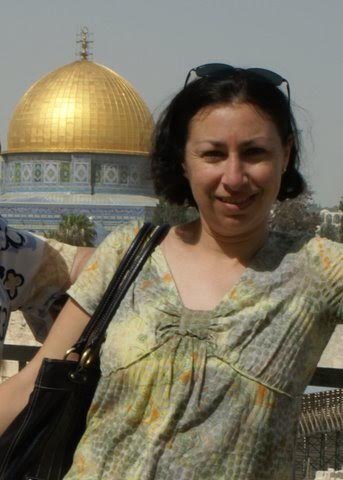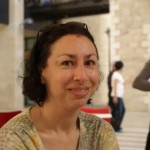 “Travel isn’t always pretty. It isn’t always comfortable. Sometimes it hurts, it even breaks your heart. But that’s okay. The journey changes you; it should change you.” – Anthony Bourdain, No Reservations
“Travel isn’t always pretty. It isn’t always comfortable. Sometimes it hurts, it even breaks your heart. But that’s okay. The journey changes you; it should change you.” – Anthony Bourdain, No Reservations
Across the world, food choices (or restrictions) are often driven by religious beliefs. I considered myself pretty savvy about dietary rules; I had travelled to over 30 countries for business or leisure, and read extensively about local traditions before my visits. However, two business trip experiences particularly challenged my assumptions. I worked at a global mobility firm, and was assigned to conduct cost-of-living surveys in various countries. This work involved visiting supermarkets, restaurants, and other business to collect pricing information for companies relocating employees abroad. My experiences in two vastly different countries—Uzbekistan and Israel— humbled me and taught me how much more I needed learn about local culture.
 Let’s start with Israel, a place I’m quite familiar with. Most of my father’s relatives live there and I visited 9 times since childhood. I grew up observing the traditional rules of a kosher home, eating only foods labeled as kosher, avoiding pork and shellfish, and separating dairy and meat products. Needless to say, keeping kosher in Israel is a no-brainer. However, I somehow felt compelled to bend the rules when I went to Haifa for the first time as a business woman.
Let’s start with Israel, a place I’m quite familiar with. Most of my father’s relatives live there and I visited 9 times since childhood. I grew up observing the traditional rules of a kosher home, eating only foods labeled as kosher, avoiding pork and shellfish, and separating dairy and meat products. Needless to say, keeping kosher in Israel is a no-brainer. However, I somehow felt compelled to bend the rules when I went to Haifa for the first time as a business woman.
My assignment included interviewing 3 real estate agents on the expatriate housing market; each meeting lasted from 1-2 hours and each source was friendly and helpful. One agent was a young, hip guy who chain-smoked and wore a brown leather aviator jacket. In some ways, he reminded me of my laid-back and progressive cousins. He took extra time to show me properties that I could photograph for clients. To thank him, I chose to gift this agent a bottle of wine. I decided against the standard Israeli choices, and picked a French Bordeaux, thinking he would like it better. To my surprise, the agent politely declined the bottle as it wasn’t kosher, and I felt terrible. I thought because he seemed so modern and stylish that he wasn’t observant. There is a big divide between conservative, religious Israeli communities and their secular counterparts; I wrongly assumed that this guy neatly fit into the second group.
In Uzbekistan, an offer of food created an awkward moment during the Muslim month of Ramadan. Since Uzbekistan is a secular state compared to more traditional Muslim countries, the public observance of fasting wasn’t obvious, at least to me. I had finished my work in Tashkent, and was taking a planned overnight trip to Samarkand, a 4-hour drive from the capital. The concierge at the hotel hired an employee for me, a chatty, chain-smoking man who was a polite and good driver. However, he endlessly urged me to switch hotels to the one his cousin managed. Halfway through the trip, perhaps to avoid the praises of the other hotel for the 83rd time, I offered the driver some snacks, and he shook his head vigorously, saying no, it was Ramadan. Once again, I felt like a clueless visitor who should have known better. Smoking is also prohibited during Ramadan, so I had assumed the driver would also be eating. Not only was he was quick to forgive, he came to my unexpected rescue the next morning. I woke up to a surprise early winter storm, snow coming down fast and furious, and knew that the pre- arranged 2 pm departure would be too late. The amiable owner of my guest house called the driver’s cousin’s hotel, and my ride showed up minutes later. Bravo, “Hotel Camelia!” I never saw you, but I’ll never forget you.
The kindnesses I’ve experienced on the road have made me more grateful. The invitation to share a meal, dine in someone’s home, or the chance to observe how holidays are celebrated have inspired me to see and learn more. And in our fascinating, diverse world, hospitality holds the key to understanding.
 About the Author: Betty is an experienced traveler and hopes to keep expanding her list of 41countries visited. She is fluent in French and also converses in Hebrew and Portuguese when she can! Prior to exploring a career in International Education, Betty worked at a global mobility consulting firm where she managed and supported young professionals around the world. Connect with her at LinkedIn or via email at [email protected]
About the Author: Betty is an experienced traveler and hopes to keep expanding her list of 41countries visited. She is fluent in French and also converses in Hebrew and Portuguese when she can! Prior to exploring a career in International Education, Betty worked at a global mobility consulting firm where she managed and supported young professionals around the world. Connect with her at LinkedIn or via email at [email protected]

